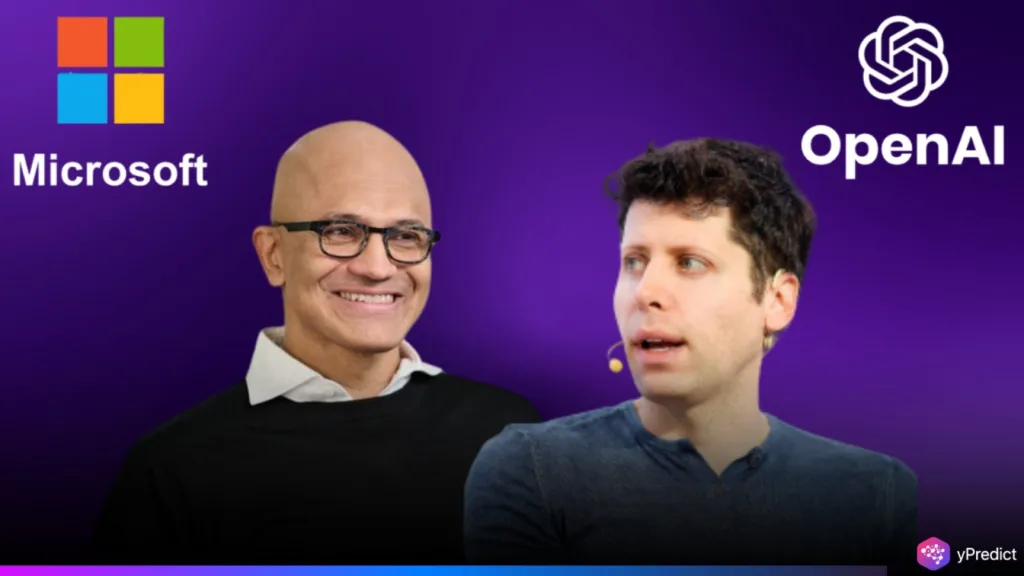
The alliance between Microsoft and OpenAI is weakening as regulatory pressure and competitive threats strain their once-strong $13 billion partnership. Microsoft is reportedly considering exiting talks to restructure its investment, signaling deep uncertainty about the partnership’s future direction and control. Key issues driving the rift include antitrust concerns, governance conflicts, and OpenAI’s push to overhaul its internal corporate structure. These tensions mark a pivotal moment in the AI landscape, as two major players struggle to realign long-term strategic interests.
Antitrust Concerns Challenge AI Partnerships
The Financial Times reports that Microsoft is reportedly prepared to walk away from ongoing negotiations with OpenAI, reflecting deepening tensions in one of the most high-profile partnerships in the artificial intelligence sector. The companies, reportedly, remain at odds over key terms of their alliance, including Microsoft’s prospective equity stake and continued access to OpenAI’s technology and infrastructure.
Both companies insist talks continue in good faith, but the dispute raises doubts about the long-term future of their partnership. Microsoft has invested more than $13 billion in OpenAI since 2019, securing access to advanced models like ChatGPT. It has integrated these AI tools across its products and services, strengthening its competitive position in enterprise and consumer markets.
Despite months of daily meetings aimed at finding common ground, insiders say Microsoft may walk away if no favorable deal is reached. For now, it plans to rely on its current contract, which secures access to OpenAI’s technology through 2030, and sees little reason to make further concessions.
This standoff comes as OpenAI seeks to convert from a non-profit to a public-benefit corporation, a move aimed at easing fundraising and enabling a future IPO. However, the shift requires Microsoft’s approval, without which billions in potential investments, including from SoftBank, could be at risk.
The dispute centers on Microsoft’s bid to protect its $13 billion investment in OpenAI. Negotiations focus on its future equity stake, between 20% and 49%, and updating legacy terms. Microsoft currently has exclusive distribution rights and a 20% revenue share up to $92 billion.
Tensions Over Control, IP, and Infrastructure
As OpenAI seeks more control over its IP and computing resources, its tensions with Microsoft have sharply intensified in recent weeks. Reports suggest OpenAI has considered accusing Microsoft of anticompetitive practices, a potential “nuclear option” to strengthen its negotiation position.
Complicating matters, OpenAI recently acquired Windsurf, an AI coding startup, and is working to restrict Microsoft’s access to its technology. This move could limit enhancements to Microsoft tools like GitHub Copilot, deepening friction over shared assets and competitive product development.
Despite rising tensions, both companies insist discussions remain constructive and express confidence in continuing their partnership. However, sources indicate Microsoft is satisfied with the current deal, sees little urgency to renegotiate, and prioritizes revenue over equity gains. Microsoft and OpenAI said in a joint statement that,
We have a long-term, productive partnership that has delivered amazing AI tools for everyone. Talks are ongoing, and we are optimistic we will continue to build together for years to come.
Reflecting its broader strategy under CEO Satya Nadella, Microsoft is diversifying its AI ecosystem, recently adding Elon Musk’s xAI model “Grok” to Azure. This move signals that OpenAI is no longer its sole focus, with insiders noting the startup may no longer lead the generative AI race.
Legal Hurdles and Investor Pressure Intensify Stakes
Several exclusive clauses in the Microsoft-OpenAI agreement are also under review. These include Microsoft’s exclusive software distribution rights, infrastructure role, and early access to OpenAI’s IP. A major sticking point, its right to OpenAI’s technology to AGI, will likely be dropped in the revised agreement.
Additionally, OpenAI is facing infrastructure constraints, with CEO Sam Altman and CFO Sarah Friar citing limited computing capacity to handle ChatGPT’s 500 million weekly users, model training, and product expansion. Tensions have escalated over Microsoft’s control of critical computing resources.
Even if an agreement is reached, the deal must still pass regulatory scrutiny in California and Delaware. Legal challenges, most notably from Elon Musk and former OpenAI employees, could also delay or complicate the conversion.





